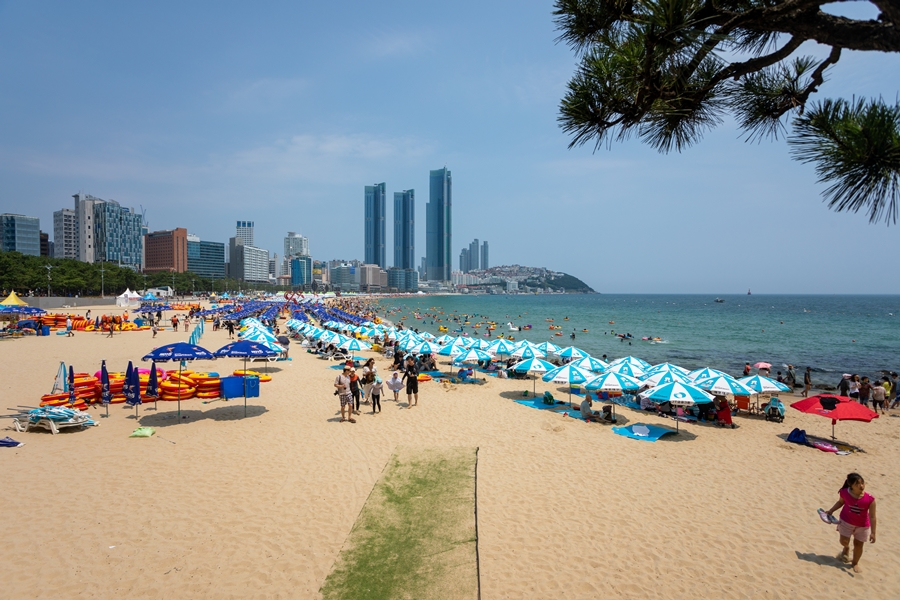Daily Busan
Haeundae and Songjeong beaches deemed safe

The results of the Public Health and Environment Research Institute have shown that the water and sand quality at Haeundae and Songjeong beaches meet environmental safety standards. This institute, which is an organization under the Busan City government, conducts examinations and research on various data and samples ranging from soil to water, air, and oceans. Its objective is to enhance the quality of life for the city's residents.
In the examination of water quality, indicator bacteria associated with waterborne diseases, such as enterococcus and E. coli, were measured using the “Most Probable Number” test. Enterococcus bacteria grow alongside feces in the guts of humans or other warm-blooded animals. A high presence of enterococcus bacteria is considered a red flag that other dangerous pathogens are also present in the water.
The environmental standards for each indicator are set at 100 MPN per 100 milliliters for enterococcus and 500 MPN/100mL for E. coli. The results for each beach were within the limits of the standards.
At Haeundae Beach, the numbers ranged between 0 and 5 MPN per 100mL for enterococcus and between 0 and 10 MPN per 100mL for E. coli. At Songjung Beach, the results ranged from 0 to 16 MPN per 100mL for enterococcus and from 0 to 16 MPN per 100mL for E. coli.
Regarding the quality of beach sand, toxic metals such as cadmium, arsenic, lead, mercury, and hexavalent chromium were examined. The results showed figures below the permissible limits for all metals at both beaches. The levels detected were notably low, with figures ranging from 0.21 to 0.31 milligrams per kilogram for cadmium, 3.15 to 5.70 mg per kg for arsenic, and 5.5 to 8.0 mg per kg for lead. Neither mercury nor hexavalent chromium, a toxic byproduct of industrial processes, were detected in the examination.
Busan will continue to examine the water and sand quality at other beaches citywide, including Dadaepo Beach, Songdo Beach, Gwangalli Beach, Ilgwang Beach and Imnang Beach, before their scheduled opening on July 1. The water examination will be conducted on a regular basis; two times per month during the beach opening period and once a week during the high season. These assessments provide valuable information for swimmers looking for the best bathing sites across Busan this summer.
The results of each examination can be found on the official website of the Busan Metropolitan City Institute of Health & Environment (heis.busan.go.kr) or on the respective websites of each district or county, as listed below:
Haeundae and Songjung Beach: Haeundae-gu district (haeundae.go.kr)
Dadaepo Beach: Saha-gu (saha.go.kr)
Songdo Beach: Seo-gu (bsseogu.go.kr)
Gwangalli Beach: Suyeong-gu (suyeong.go.kr)
Ilgwang and Imnang Beach: Gijang-gun (gijang.go.kr)

